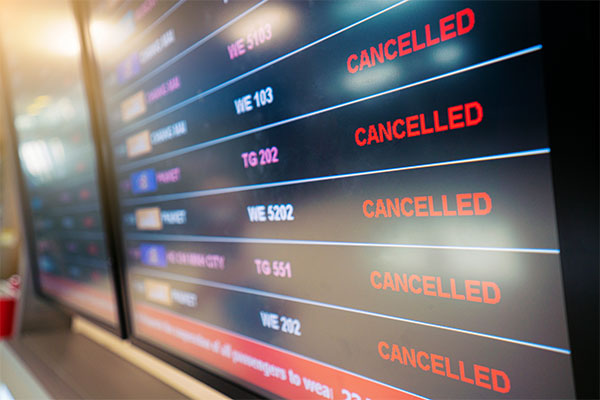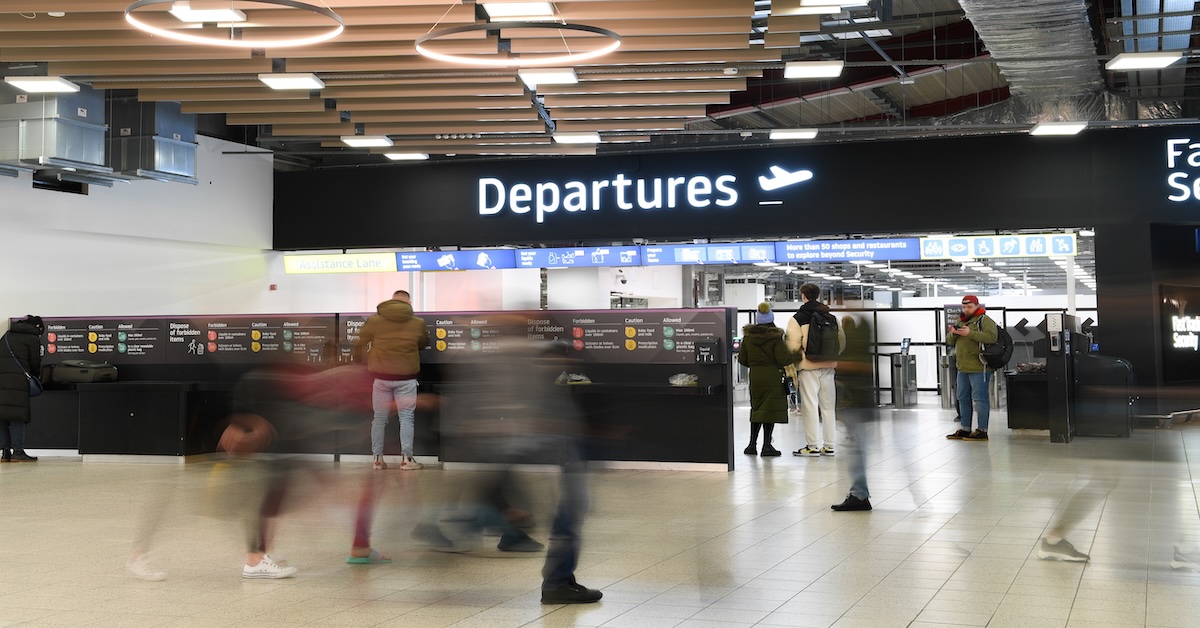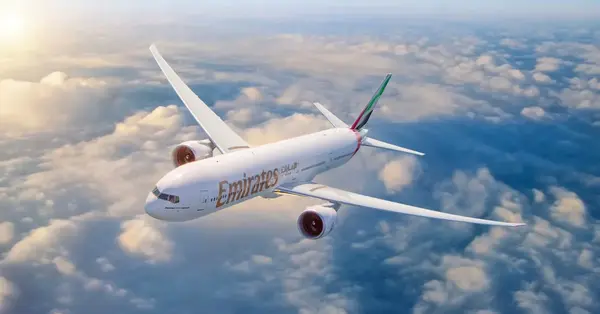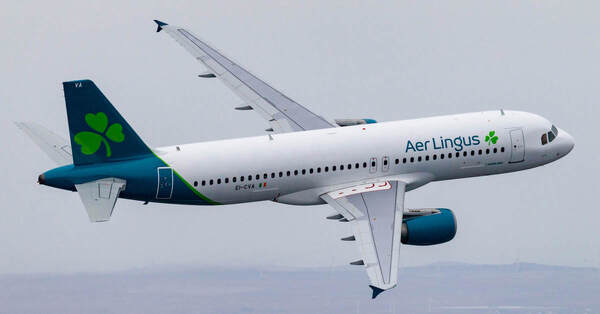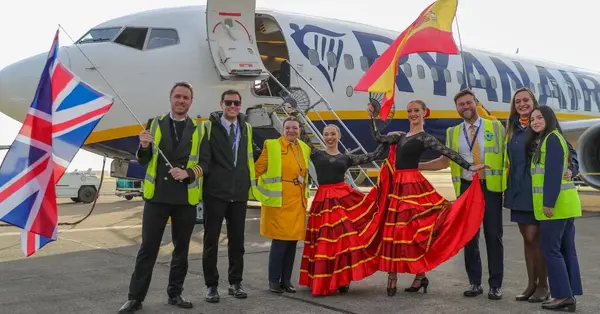You are viewing 2 of your 2 free articles
Summer flight disruption threat ‘overplayed’, say industry sources
Industry sources have downplayed media reports of a Brussels air traffic control strike threatening “up to a third of all European flights this summer” and insist other carriers have no plans to follow easyJet in cancelling flights.
EasyJet announced the cancellation of 1,700 flights through to the end of September on Monday due to concerns about air traffic control (ATC) delays. It blamed “constrained airspace due to the war in Ukraine, as well as ATC strikes”.
French air traffic controllers continue to stage regular strikes, causing extensive delays over northern Europe, while the Ukraine war has closed 20% of Europe’s airspace, which is adding to delays.
But passengers’ concerns were heightened by The Times reporting on July 7 that a strike warning by controllers in a Brussels-based union, the USB, “could ground summer flights”.
More: Lack of flights impacting Scottish bookings to the US, says Barrhead boss
UK flights cancellations drop to lowest level since 2019
In fact, any USB action would affect the network managers’ centre in Brussels, not air traffic control, and the union confirmed it had issued “a pre-warning” of industrial action, stating: “We are currently negotiating and as long as we are negotiating we see no reason to announce actions.”
A senior airline source said: “ATC strikes are the biggest concern this summer. But creating anxiety like that doesn’t help.”
EasyJet confirmed the flight cancellations, saying: “We’ve made some pre-emptive adjustments, consolidating a number of flights at Gatwick where we have multiple daily frequencies.
“We’ll continue to operate around 90,000 flights over this period [July to September], with 95% of customers rebooked and all provided with the option to rebook or receive a refund.”
The cancellations are overwhelmingly at Gatwick, which is easyJet’s largest base and also a constrained airport, meaning ATC delays have a greater impact.
The industry source explained: “EasyJet’s operation is more impacted by strikes in France than most other carriers. We’re not seeing capacity reductions across the rest of the industry. A lot of carriers couldn’t reduce their summer operations now anyway.”
Travel Weekly reported early last month that strikes by air traffic controllers were the biggest concern this summer following serious delays and cancellations due to staff shortages last year.
The airline source confirmed: “We have to be prepared for the unexpected this summer, but the industry is good at that.”
Newly released Eurocontrol figures for June, the first month of the summer, show that while traffic was up by 7% compared to the same month last year, air traffic flow management (ATFM) delays per flight were down by 8% to 3.7 minutes per flight.
Traffic levels in June in many parts of Europe were at or above those of pre-Covid June 2019.
In some areas of south-east of Europe in particular, they were up to 15% above 2019 while overall ATFM delays in June were 7% lower.
Eurocontrol said: “This clear positive trend comes despite the war in Ukraine reducing available airspace and shows that close co-operation between all operational partners in preparation for the summer is delivering a good result and keeping delays to a minimum.
“Specific areas are experiencing constraints caused by local issues such as infrastructure or staffing.
“Where these exist, Eurocontrol is continuing to work with airlines, air navigation service providers, the military and airports to mitigate the impacts as much as possible.”
The organisation said it will continue to “do its utmost” in partnership with operational stakeholders to maintain the “positive start” to the summer in the July and August peaks.
Meanwhile, latest data shows that UK flight departures in the first half of the year reached 85% of pre-pandemic 2019 levels at 447,646 flights – equivalent to more than 79 million seats.
Aviation analytics firm Cirium found that departures were up by almost a quarter on the same period last year and by 453% on there first six months of 2021 as the industry continued to build back from the pandemic and staffing shortages.
EasyJet was the UK’s largest airline during the first half of the year, with 87,544 departures from UK airports, followed by British Airways, Ryanair, Loganair and Jet2.
Current schedules show 511,470 flights departing UK airports in the second half – up 14% compared to the first six months of the year. Departures are projected to reach 92% of 2019 levels.
More: Lack of flights impacting Scottish bookings to the US, says Barrhead boss

